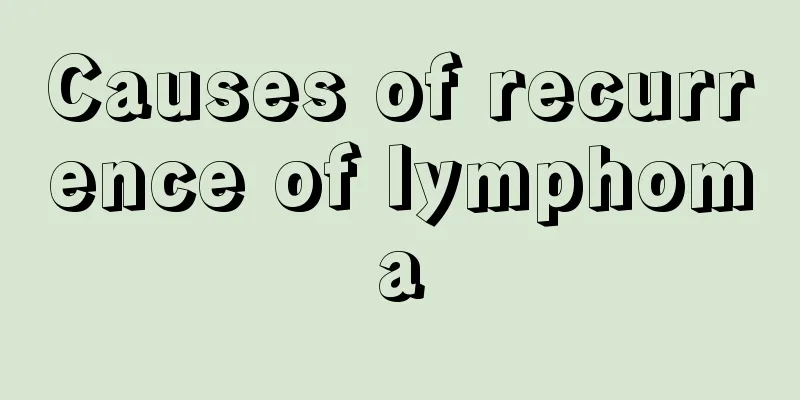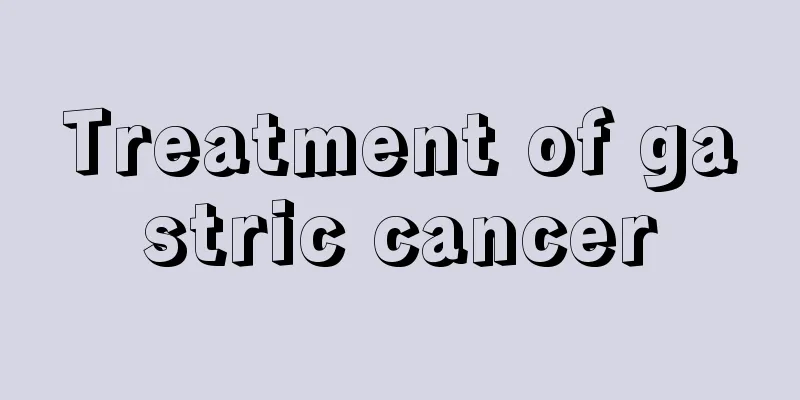What are the treatment methods for functional exercises after radiotherapy for nasopharyngeal carcinoma?

|
For patients with nasopharyngeal carcinoma, the focus is on active prevention and strengthening of functional exercises for chronic and long-term radiation reactions such as persistent dry mouth caused by salivary gland damage, difficulty in opening the mouth caused by fibrosis of the masticatory muscles and temporomandibular joints, and limited neck movement caused by fibrosis of the cervical joint muscles. What are the functional exercises after radiotherapy for nasopharyngeal carcinoma? What is the treatment method? The exercise is as follows: 1. Rinse your mouth with tea: Rinse your mouth with warm tea after each meal, alternately puffing your cheeks and sucking, and rinse your mouth thoroughly for 1-3 times to remove food debris between teeth, thereby achieving the effect of cleaning teeth and maintaining oral hygiene. 2. Knock teeth: Tap or bite the upper and lower teeth 2-3 times a day, about 100 times each time, and lick the periodontium with the tip of the tongue 3-5 times to end Since pathological examinations are mostly poorly differentiated squamous cell carcinoma, radiotherapy is recognized as the first choice of treatment. Conventional radiotherapy has many complications, and three-dimensional conformal or enhanced radiotherapy is recommended. The total irradiation dose to the nasopharynx is 66~70Gy/6.5~7 weeks, the radical dose for positive cervical lymph nodes is 56~60Gy, and the preventive radiation dose for negative cervical lymph nodes is 46~50Gy. During radiotherapy, chemotherapy, traditional Chinese medicine, and immunotherapy can be combined to improve the efficacy. Comprehensive treatment methods such as chemotherapy and surgery can be used for some advanced patients and recurrent cases after radiotherapy, as well as a small number of adenocarcinomas and squamous cell carcinomas that are insensitive to radiation. Due to different disease stages, the prognosis of nasopharyngeal carcinoma varies greatly: the 5-year survival rate of stage I cases with comprehensive treatment can reach 95%, while that of stage IV patients is only 35%. Early detection and early treatment are the key to improving the efficacy. |
<<: What Chinese medicines can I take for cervical cancer
>>: What to do if you can't breathe in the late stage of nasopharyngeal cancer
Recommend
Symptoms of advanced uterine cancer may be complicated by infection
In the female reproductive tract, uterine cancer ...
What's the matter with eye mucus in the morning
As we all know, every morning, eye boogers appear...
What's wrong with small blisters on the lips
Sometimes you will find that there are small blis...
The difference between oyster locusts and oysters
Oyster locust is mainly used to treat insomnia. M...
What are the symptoms of Trichomonas urethritis?
Currently, Trichomonas urethritis is a common dis...
What's wrong with my eyes bulging outwards
Bulging eyes may be caused by diseases such as my...
Can breast cancer patients eat beef and mutton?
Breast cancer patients can eat beef and mutton in...
How to clean underwear
We all know that underwear is something we touch ...
Anti-inflammatory drugs make shit harder
If people's bodies become inflamed, it is eas...
How to make black rice porridge
Black rice is rich in nutrients. The most common ...
Suddenly my waist hurts and I can't bend over
In daily life, we often hear people say that they...
What are the symptoms of getting angry after eating durian?
Durian is a food with extremely high nutritional ...
Does smoking and holding urine increase the risk of bladder cancer? Can frequent urination prevent bladder cancer?
Everyone has had the experience of holding urine....
How long does it take to replenish the kidneys
For some patients with kidney deficiency or renal...
Under what circumstances will glioma occur
Relevant oncology experts said that glioma is one...









